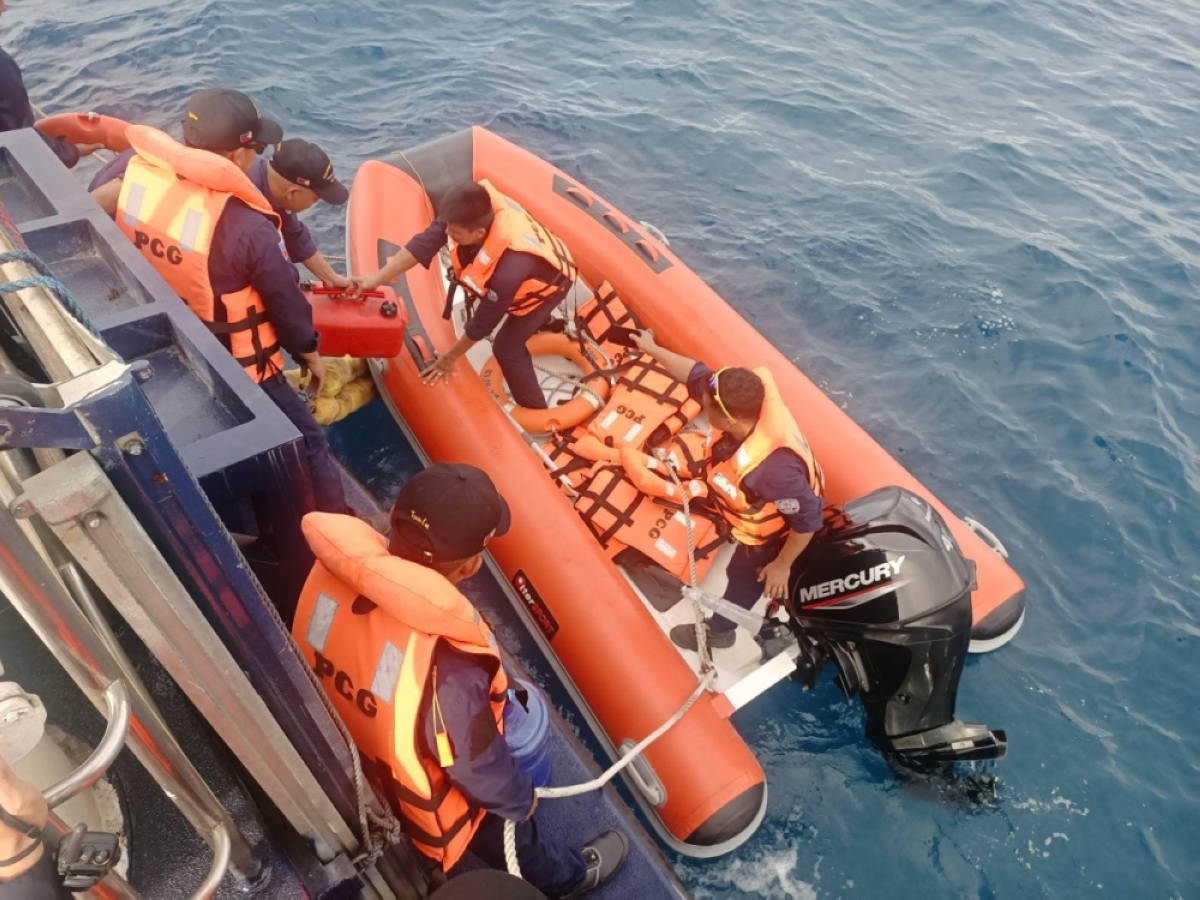The Philippine Coast Guard’s Participation in the Balikatan Exercise
The participation of the Philippine Coast Guard (PCG) in the Balikatan exercise marks a significant milestone in the long-standing military alliance between the Philippines and the United States. This joint training exercise, which has been held annually since 1981, aims to enhance the interoperability and cooperation between the armed forces of both countries.
Enhancing Maritime Security
The inclusion of the PCG in this year’s drills reflects the growing importance of maritime security in the region, particularly in light of the escalating tensions in the South China Sea. Under the leadership of PCG Commandant Admiral Ronnie Gil Gavan, the coast guard fleet has been instructed to prepare six of its ships for the Balikatan exercise. These vessels include four multi-role response vessels (MRRVs) and two patrol boats that are regularly deployed for maritime security operations in the Philippines’ exclusive economic zone (EEZ).
By participating in the exercise, the PCG aims to enhance its capabilities in maritime law enforcement, search and rescue operations, and disaster response.
Joint Operations and Interoperability
During the Balikatan exercise, the PCG ships will join a “group sail” with the Philippine Navy, US Navy, US Coast Guard, and French Navy. This joint maritime operation will provide an opportunity for the participating countries to enhance their coordination and communication skills in a real-world scenario. Additionally, members of the PCG’s Special Operations Force will engage in “joint interoperability exercises” with the navies of the Philippines, Australia, France, and the US. These exercises will focus on enhancing the ability of the coast guard and naval forces to work together seamlessly in various maritime security operations.
Addressing the South China Sea Dispute
While the Balikatan exercise is primarily aimed at improving interoperability and skill development, it cannot be ignored that the exercise takes place in proximity to potential flashpoints in the South China Sea and Taiwan. The disputed territorial claims and competing interests in these areas have led to increased tensions among the countries involved. The participation of the PCG in the exercise serves as a demonstration of the Philippines’ commitment to safeguarding its maritime interests and upholding international law in the region.
Importance of Maritime Security
Overall, the inclusion of the PCG in the Balikatan exercise signifies the growing recognition of the importance of maritime security in the Philippines and the broader Indo-Pacific region. Through this joint training, the PCG will not only enhance its operational capabilities but also strengthen its partnerships with other maritime forces. This collaboration is crucial for maintaining peace, stability, and the rule of law in the region, particularly in areas where maritime disputes persist. As the Balikatan exercise continues to evolve and adapt to the changing security landscape, the participation of the PCG will undoubtedly contribute to the collective efforts in ensuring a safe and secure maritime environment.
The Role of Balikatan in Addressing the South China Sea Dispute
The Balikatan exercises, an annual military training exercise between the United States and the Philippines, play a crucial role in addressing the South China Sea dispute. These exercises serve as a demonstration of the Philippines’ commitment to enhancing its defense capabilities and ensuring regional stability. By conducting these drills, the Philippines aims to deter any potential aggression and assert its sovereignty over its territorial waters.
Protecting Maritime Interests and Asserting Sovereignty
The simulation of an armed recapture of an island off Palawan highlights the importance of protecting the Philippines’ maritime interests in the South China Sea. This exercise not only showcases the Philippines’ determination to defend its territorial claims but also serves as a clear message to China that any encroachment on Philippine territory will be met with a strong response.
Furthermore, the sinking of a vessel off the northern province of Ilocos Norte demonstrates the Philippines’ preparedness to safeguard its maritime borders. This exercise not only tests the capabilities of the Philippine Navy but also serves as a deterrent to any potential intruders in the region.
United States’ Commitment and Diplomatic Implications
The Balikatan exercises also provide an opportunity for the United States to demonstrate its commitment to its allies in the region. By conducting joint military drills with the Philippines, the United States sends a strong message to China that it will not tolerate any actions that threaten the freedom of navigation in the South China Sea. These exercises also serve to strengthen the military cooperation between the two countries, allowing for better coordination and interoperability in the event of a conflict.
In addition to the military aspect, the Balikatan exercises also have significant diplomatic implications. The presence of U.S. forces in the region serves as a deterrent to any potential aggression by China, as it demonstrates the United States’ commitment to the security of its allies. It also provides an opportunity for the Philippines to engage in multilateral discussions on the South China Sea dispute, as other countries with a stake in the region often observe the exercises.







